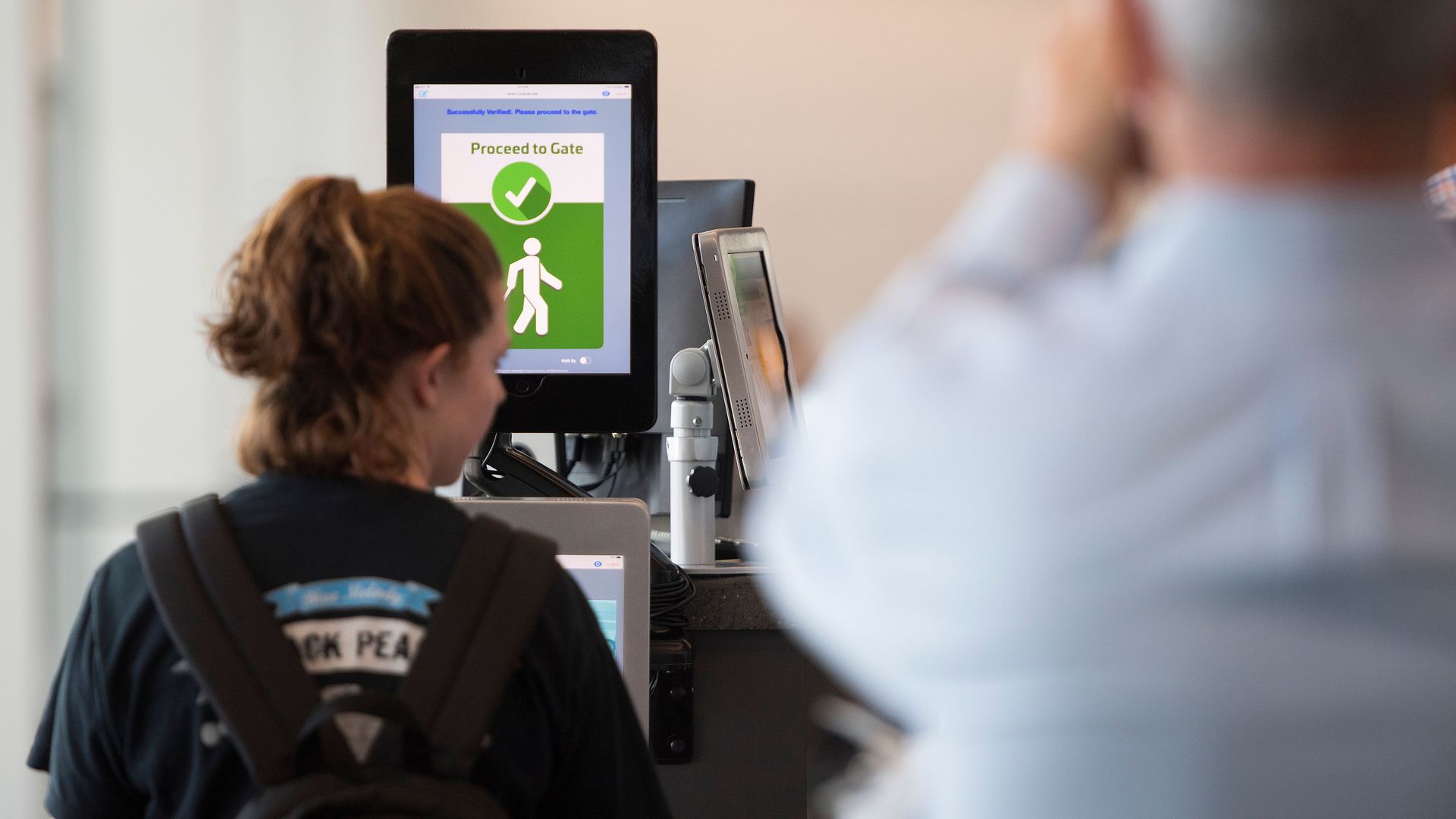Dec 5, 2019 - Technology
Department of Homeland Security drops controversial facial recognition plan
Add Axios as your preferred source to
see more of our stories on Google.

A facial recognition system at Dulles Airport. Photo: Jim Watson/AFP/Getty
Add Axios as your preferred source to
see more of our stories on Google.

A facial recognition system at Dulles Airport. Photo: Jim Watson/AFP/Getty